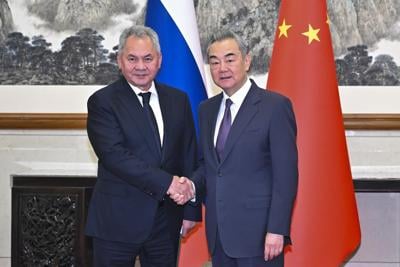
Washington, D.C. – U.S. Secretary of State Antony Blinken has voiced serious concerns over Russia’s recently updated military doctrine, which outlines an increasingly aggressive stance towards the West and expands its nuclear weapons policy. Speaking at a press briefing on Thursday, Blinken highlighted the potential threats posed by the doctrine and its implications for global security.
“Russia’s new military doctrine signals a troubling shift in its strategic priorities, particularly with its expanded emphasis on the use of nuclear weapons in a wider range of scenarios,” Blinken said. “This undermines decades of arms control efforts and raises the risk of conflict escalation in Europe and beyond.”
The updated doctrine, unveiled earlier this week by Russian officials, includes provisions that allow for the preemptive use of nuclear weapons in response to conventional threats. It also identifies NATO and the United States as primary adversaries, citing what Moscow claims to be “Western provocations” near its borders.
Blinken reiterated the U.S. commitment to supporting its allies in Europe, particularly NATO members, in the face of growing tensions with Moscow. “The United States remains steadfast in its support for NATO and our European partners,” he stated. “We will continue to ensure that the alliance is prepared to counter any potential threats, while also working towards diplomatic solutions to reduce tensions.”
The release of the doctrine has sparked international criticism, with several European leaders calling for renewed dialogue to avoid further escalation. Experts have also raised concerns about the potential for miscalculations, given the increasingly hostile rhetoric from both sides.
“We urge Russia to return to constructive engagement and transparency regarding its military intentions,” Blinken added. “The world cannot afford another arms race or the erosion of global security frameworks.”
The State Department confirmed that discussions are underway with NATO allies to assess the implications of Russia’s new policy and to strengthen collective deterrence measures. Meanwhile, U.S. officials emphasized the importance of maintaining open communication channels with Moscow to prevent misunderstandings or unintended escalations.
As the geopolitical landscape grows increasingly fraught, the international community watches closely to see how both Washington and Moscow navigate the mounting tensions.
Be the first to comment